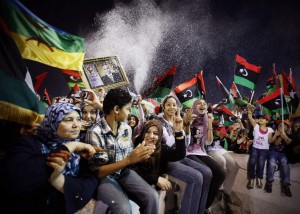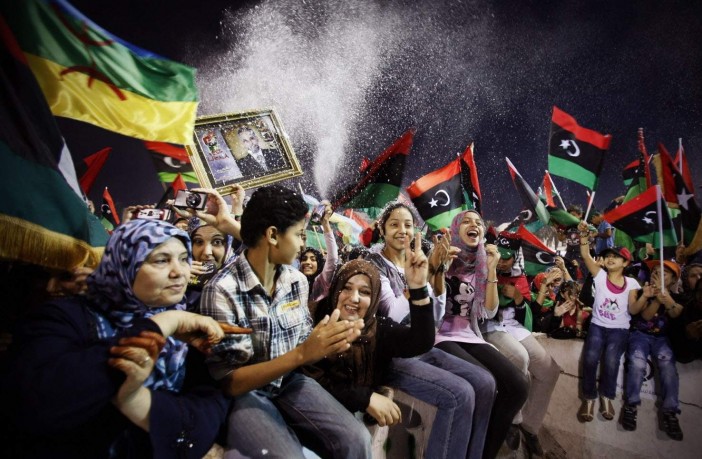The Tampa Tribune
Editorials

It’s been barely five years since we witnessed what is widely known as the Arab Spring, which began in Tunisia and caused that nation’s embattled president to flee to Saudi Arabia in January 2011.
Most Westerners viewed this as a hopeful sign that a new era of democracy and enlightenment was about to emerge in most, if not all, Arab nations.
But it wasn’t to be, as we’ve seen all to clearly in Syria, Saudi Arabia and numerous other nations in the Middle East. This week the picture darkened when Bahrain, where the largest Arab Spring demonstrations had occurred, arrested four American journalists and accused them of fomenting trouble, though they were later released.
And the dire situation in Syria is deservedly drawing the most attention now.
In the United States there has been a serious debate raging about how Washington should have responded to the tragedy unfolding every day in Syria, and many Americans — even some of the president’s staunch supporters — believe the Obama administration dropped the ball in its reluctance to enter the fray, militarily, on behalf of those seeking to unseat President Assad.
The Syrian situation remains fluid, with both the United States and Russia taking steps that could be helpful if these two superpowers can put aside their own competing agendas long enough to at least lessen the miseries afflicting the Syrian people.
But while watching that serious drama unfold, we risk overlooking one of the more discouraging consequences of the Arab Spring, the failure of democratic values to gain a foothold in Egypt, where Washington keeps hoping for a better outcome.
It could be argued that the plight of the Egyptian people has worsened since the overthrow of Hosni Mubarak, who had ruled Africa’s most populous nation for 30 years. That led to Egypt’s first free parliamentary elections, which saw Muslim Brotherhood leader Mohamed Morsi elected president.
That, in turn, led to protests against Morsi’s authoritarian administration, and in 2013 a military coup d’etat paved the way for the election of former general Abdel Fattah el-Sisi as president in 2014.
If measured against the hopes of the people, Sisi’s leadership has been nothing short of a disaster. There are widespread reports of detentions and even the torture of dissidents, and most recently the government of Italy demanded a full investigation into the death of one of its citizens in Egypt.
There were signs that the victim, whose half-naked body was found in a ditch, had been tortured, and there are multiple tales of such brutal behavior by Sisi’s security forces.
And even more recently, Egyptian doctors mounted a vigorous protest about how the police — under Sisi’s control — have behaved toward them. It all began when a Cairo doctor told a policeman his cut didn’t need stitches and for that he was beaten by the police and taken into custody.
Thousands of Egyptian doctors protested in Cairo last week. Such demonstrations are rare nowadays. Thousands of political dissents have reportedly been arrested since protests without a police permit have been forbidden since 2013.
All this has led some to conclude that the Arab people, who overwhelmingly are Muslims, are impeded by their religious beliefs and customs from embracing the central elements of democracy.
But some observers in the West find that conclusion premature, if not downright wrong. As long as three years ago, The Economist offered its readers a different view of the Middle East’s struggles with democracy.
“Outside the Arab world, Islamists — in Malaysia and Indonesia, say — have shown that they can learn the habit of democracy,” its report observed. “In Turkey too, the protests against the autocratic but elected prime minister, Recep Tayyip Erdogan, have more in common with Brazil than the Arab spring. Turkey, for all its faults, is more democratic today than it was when the army lurked in the background.”
Note the use of the phrase “the habit of democracy” and the suggestion that Islamists can learn that habit. That’s surely the view of optimists, and given the brutal behavior of so many militant Islamists, pessimism seems justified.
Whoever is the next president of the United States, he or she will have to deal with these discouraging consequences of the Arab Spring; hoping it will turn out better won’t be enough.







